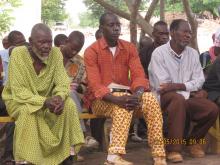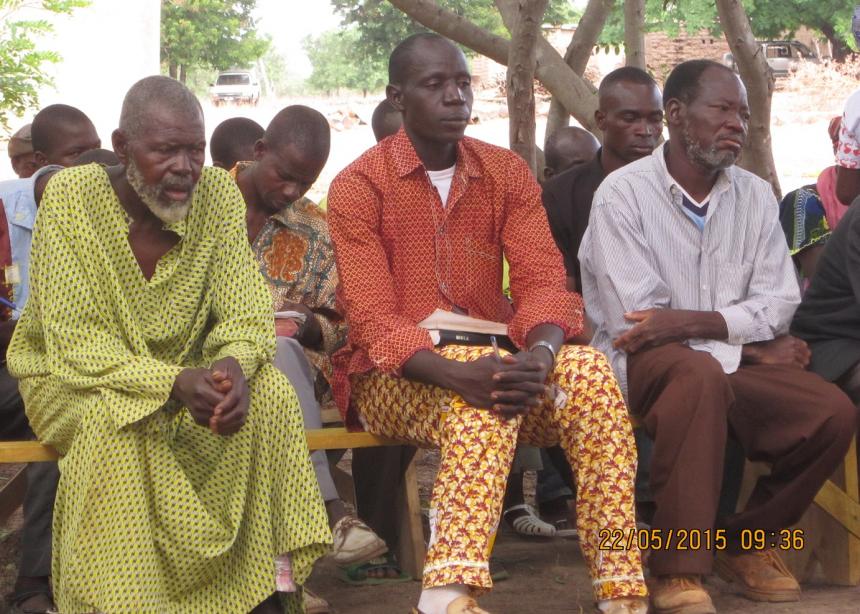In the village of Sidi, Burkina Faso, a group of Mennonite Christians risk losing access to the land they farm and to their place within the village community, because of their faith. They refuse to provide chiefs with items designated for sacrifice to the spirits of the land.
A group of village leaders and chiefs manage and parcel out land to families and groups, mostly for agricultural purposes. They do not own the land, but they oversee its use, to ensure that everyone has enough land to grow the food necessary to feed their families.
In exchange for cultivating land, village residents are expected to provide a living chicken and four liters of dolo, a locally made millet beer for sacrifice.
The first Christian in Sidi, Seydou Sanogo, settled there in 1998. After an evangelistic outreach effort in 2011, a Mennonite congregation connected to the Evangelical Mennonite Church of Burkina Faso (Eglise Evangélique du Burkina Faso) began to emerge.
Initially Seydou Sanogo and other Christians complied with the requests of the village leaders in Sidi regarding land use, but as the Mennonite community grew, a sense of unease developed. Even though the Christians weren’t physically present when the sacrifices were offered, they still felt they were indirectly participating in the rituals.
So they stopped bringing the chickens and dolo to the village leaders.
Siaka Traoré, president of the Mennonite Church in Burkina Faso, reports that they have made other efforts to honor the spirit of the exchange. They proposed an alternative thank-you gift of money and produce from their farms—true gifts arising from their gratitude for the land. Village leaders would be free to use those gifts as they saw fit.
Traoré reports that village leaders interpret the Christians’ current stance as an act of disobedience and a breach of trust. They fear that allowing Christians to propose an alternative system of exchange would encourage others to disregard the traditional laws that facilitate relationships and order community life in the village.
In the midst of this conflict, the Mennonite Christians in Sidi fear they will lose access to the land they farm, and thus, to their livelihood. Without land, they cannot stay in the village. With the dispute ongoing since the summer of 2014, they are also concerned that the land may be confiscated after they have invested in planting for the season, and before harvest.
Traoré reports that the Christians believe God is working through the difficulties they face and that God is using the conflict to speak to the people of Sidi. They carry the light of Christ and hope that their witness will enable village leaders and others to see the true nature of the Christian faith, which seeks reconciliation, not division.
This article was first published by the Bearing Witness Stories Project (www.martyrstories.org/sidi-burkina-faso/) and has been adapted with permission.

Mennonite Christians in the village of Sidi, Burkina Faso, at a meeting in May 2015. These farmers risk losing access to their land and to their place within the village community because of their faith. They refuse to provide chiefs with items designated for sacrifice to the spirits of the land. (Photo by Siaka Traoré)


Add new comment
Canadian Mennonite invites comments and encourages constructive discussion about our content. Actual full names (first and last) are required. Comments are moderated and may be edited. They will not appear online until approved and will be posted during business hours. Some comments may be reproduced in print.